Filter by
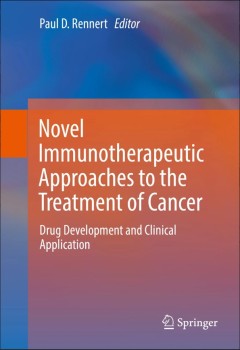
Novel Immunotherapeutic Approaches to the Treatment of Cancer:Drug Developmen…
Cancer care is undergoing a radical transformation as novel technologies are directed toward new treatments and personalized medicine. The most dramatic advances in the treatment of cancer have come from therapeutics that augment the immune response to tumors. The immune checkpoint inhibitors are the best-known and most highly advanced examples of Immune Therapeutics targeting tumor cells and i…
- Edition
- 1
- ISBN/ISSN
- 978-3-319-29825-2
- Collation
- XI, 276
- Series Title
- -
- Call Number
- -

Noncovalent Forces
Computational methods, and in particular quantum chemistry, have taken the lead in our growing understanding of noncovalent forces, as well as in their categorization. This volume describes the current state of the art in terms of what we now know, and the current questions requiring answers in the future. Topics range from very strong (ionic) to very weak (CH--π) interactions. In the intermed…
- Edition
- 1
- ISBN/ISSN
- 2542-4491
- Collation
- VIII, 532
- Series Title
- Challenges and Advances in Computational Chemistry and Physics
- Call Number
- -

The Practical Compendium of Immunisations for International Travel
This straightforward guide to the administration of vaccines for travellers is intended to be the one-stop for the primary healthcare professional needing authoritative practical information speedily. In addition to basic knowledge in vaccinology, guides are offered as to appropriate vaccine recommendations for travel to global regions together with vaccine contents in order to identify any pre…
- Edition
- -
- ISBN/ISSN
- 978-3-319-15922-5
- Collation
- X, 242
- Series Title
- -
- Call Number
- -

Nitric Oxide and Cancer: Pathogenesis and Therapy
Advances in Nitric Oxide and Cancer is a volume that serves to give the latest research on nitric oxide (NO) and cancer. More specifically, the volume reviews significant advances in the application of NO-mediated drugs. The volume explores nitric oxide and its relationship to cancer spanning from its roles in the pathogenesis, prognosis, gene and protein modifications, regulation of resistance…
- Edition
- 1
- ISBN/ISSN
- 978-3-319-35259-6
- Collation
- XXIII, 308
- Series Title
- -
- Call Number
- -
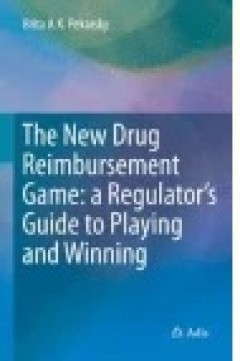
The New Drug Reimbursement Game
The limitations of the non-strategic methods that currently inform the highly contested new drug subsidy game are presented and the relative strengths of PEA are demonstrated. Health technology assessment quantifies both the clinical innovation of a new drug and its financial impact on the health system. Cost effectiveness analysis tests the relationship between the incremental cost and incre…
- Edition
- -
- ISBN/ISSN
- 978-3-319-08903-4
- Collation
- XVI, 248
- Series Title
- -
- Call Number
- -
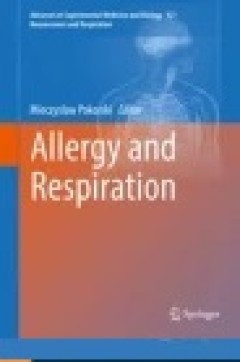
Allergy and Respiration
Allergy is an increasing health issue. It often targets the respiratory tract and entwines with respiratory ailments, which makes it difficult to discern the cause-effect linkage. Nonetheless, measures to counter the allergic background are a linchpin in preserving respiratory health. This book is an update on current advances in clinical and basic science on allergy and related topics. The dia…
- Edition
- Ed. 1
- ISBN/ISSN
- 978-3-319-42004-2
- Collation
- VIII, 87
- Series Title
- Advances in Experimental Medicine and Biology
- Call Number
- 616.97 ALL a
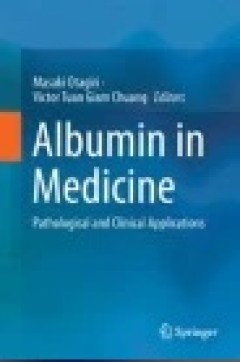
Albumin in Medicine: Pathological and Clinical Applications
This book presents a comprehensive overview of medical and pharmaceutical applications of human serum albumin (HSA), with updates on structural aspects of albumin from the perspectives of X-ray crystallography and NMR, endogenous and exogenous ligand binding of albumin in various pathological conditions, and genetic variants and their phenotypes. Rapid progress and development of its applicatio…
- Edition
- Ed. 1
- ISBN/ISSN
- 978-981-10-2116-9
- Collation
- X, 277
- Series Title
- -
- Call Number
- 615 ALB a

Air Pollution and Health Effects
Exposure to ambient air pollutants, both indoors and outdoors has been associated with the exacerbation and also in the etiology of diverse human diseases. This book offers an overview of our current understanding of air pollution health risks and how this knowledge is being used in the regulatory, therapeutic intervention measures to protect the public health and reduce the disease burden caus…
- Edition
- Ed. 1
- ISBN/ISSN
- 978-1-4471-6669-6
- Collation
- XV, 439
- Series Title
- Molecular and Integrative Toxicology
- Call Number
- 615 AIR a
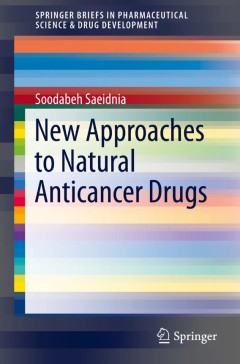
New Approaches to Natural Anticancer Drugs
This book provides an up-to-date review of recently identified natural anti-tumor compounds from various natural origins including plants, fungi, endophytic fungi and marine organisms. It also includes discussion of new areas such as biotechnology and nanoparticles. Chapters explain the challenges and developments in anti-cancer drug discovery approaches, traditional remedies for prevention an…
- Edition
- 1
- ISBN/ISSN
- 978-3-319-14026-1
- Collation
- XI, 106
- Series Title
- SpringerBriefs in Pharmaceutical Science & Drug Development
- Call Number
- -
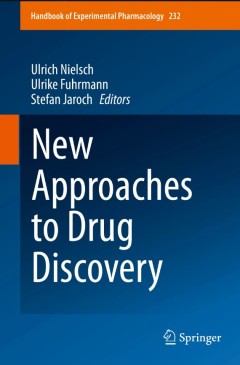
New Approaches to Drug Discovery
This volume gives an overview of state of the art technologies and future developments in the field of preclinical pharmaceutical research. A balanced mix of experts from academia and industry give insight in selected new developments in the drug discovery pathway. The topics cover the different parts of the drug discovery process, starting with new developments in the target identification and…
- Edition
- 1
- ISBN/ISSN
- 978-3-319-80455-2
- Collation
- VIII, 341
- Series Title
- Handbook of Experimental Pharmacology
- Call Number
- -
 Computer Science, Information & General Works
Computer Science, Information & General Works  Philosophy & Psychology
Philosophy & Psychology  Religion
Religion  Social Sciences
Social Sciences  Language
Language  Pure Science
Pure Science  Applied Sciences
Applied Sciences  Art & Recreation
Art & Recreation  Literature
Literature  History & Geography
History & Geography